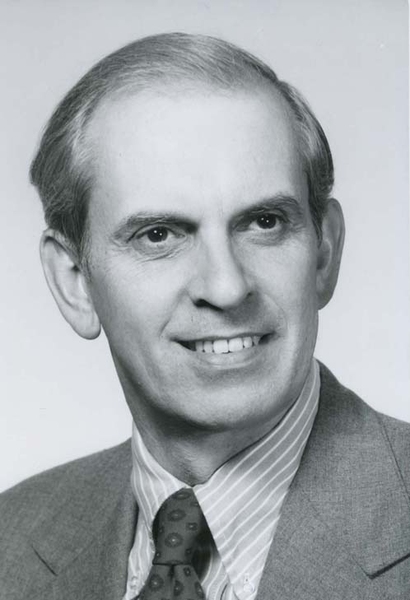William Pounds (CIT 1950, MSIA 1959, PhD 1964)
William "Bill" Pounds was the former dean and professor of management emeritus at the MIT Sloan School of Management, chairing a key panel and guiding the larger institute during the difficult Vietnam War era. Just 38 when he took the helm, Pounds was one of the longest serving leaders of a prominent business school. Stepping down after 14 years, he also served as chief financial adviser to the Rockefeller family and the senior executive for many of their holdings while continuing his professorship.
 Pounds, a Pittsburgh native, came to Carnegie Tech to earn his undergraduate degree in chemical engineering, commuting to class by streetcar. Following graduation, he worked briefly for Kodak before serving as a Navy fighter pilot during the Korean War.
Pounds, a Pittsburgh native, came to Carnegie Tech to earn his undergraduate degree in chemical engineering, commuting to class by streetcar. Following graduation, he worked briefly for Kodak before serving as a Navy fighter pilot during the Korean War.
He returned to Pittsburgh to Kodak and then earn his master’s in mathematical economics at the Tepper School of Business before moving on to PPG. While there, he was recruited to teach at the Sloan School, which he did while finishing his doctorate from the Tepper School. Pounds became dean just five years later.
Dedicated to CMU, Pounds received the CMU Alumni Association’s Alumni Achievement (Merit) award in 1963 and the Alumni Lifetime (Distinguished) Achievement Award in 1996.
He was a Fellow of The American Academy of Arts and Sciences, served on dozens of corporate boards, and was a leader of numerous philanthropic organizations.